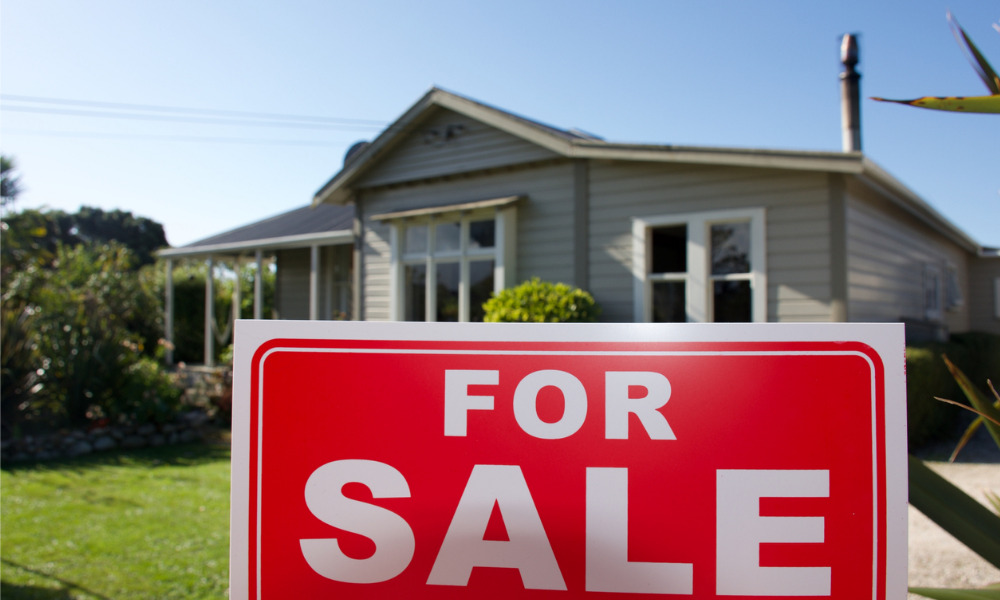How to avoid selling your home at a loss

Can you sell your house when it’s worth less than the mortgage? Short answer: Yes. But when navigating this sometimes-complex situation, it is important to understand what negative equity is, what causes it, and, more importantly, to know what lenders will likely require of you. Here is what you need to know when selling your house when it is worth less than the mortgage.
What is negative equity?
Negative equity occurs when your remaining mortgage debt is higher than the value of your home. Generally, this would be an atypical situation for homeowners since you usually need a home loan deposit to purchase a property, you repay a portion of the principal every month, and home values usually increase over time. Negative equity normally becomes an issue when you want to sell your home.
An example of the situation negative equity can create is as follows. You purchase a property for $500,000, you put down a $50,000 deposit, and you take out a loan of $450,000. Over the next three years, however, the market value of your property drops. During that period, you have repaid $20,000 worth of principal repayments, which means you still owe $430,000 on your mortgage. If, at this point, you want (or need) to sell your home, you would still have $30,000 worth of debt on the mortgage that you would need to pay off. Note: this figure omits selling costs and any real estate agent fees.
Why do you end up in negative equity?
There are multiple reasons why you could end up in negative equity, including:
Falling house prices. Negative equity can result from purchasing a property when the housing market is at a high point and the median housing prices then drop.
Overpaying for a property. Overpaying for a property is a common factor that contributes to negative equity, whether you simply got caught up in the excitement of an auction or you made a high offer to ensure you secured the home.
Property damage. If your property is damaged or destroyed, the value could also be negatively impacted. An example of this might be a fire that damages or destroys an uninsured property.
High loan-to-valuation ratios (LVRs). Your property does not need to suffer a large decrease in value for you to be in negative equity if you borrow a significant amount of the purchase price of your property – say, 95%.
How to sell your house when it’s worth less than your mortgage
To sell your house when it’s worth less than the mortgage, you will have to repay the total amount owing on your mortgage. You will, however, need to get approval from your lender before the sale of the home can go through. If you sell your property for less than the money you owe on your mortgage, your lender will take certain steps before letting the sale settlement go forward. The steps your lender could take include the following:
- Your lender could request that you provide other funds, like any other savings, to make up for the shortfall
- Your lender could ask you to finish a statement of liabilities and assets. You may need to sell other assets such as a car or a motorcycle to cover the remaining debt
- In the event of a shortfall, your lender will get an independent valuation to ensure the home was sold for a fair and reasonable market value
- The lender will want to ensure the sale was done by a licensed real estate agent and not a related-party sale
- The lender will submit an application summary to the mortgage insurer to get approval
- After the mortgage insurer gives the approval, the settlement can go forward and the insurer will pay the shortfall as well as pay the lender the amount left on the mortgage; and
- The insurer will then want to recover the money from you as the borrower.
How to avoid selling your property for a financial loss
If you have negative equity, you may have a hard time refinancing your loan with a different bank—not to mention finding a lower interest rate. It is therefore critical, whenever possible, to take steps to avoid negative equity, which can include the following:
Request help. You can contact your lender to attempt to reach a repayment holiday or hardship arrangement to help you catch up with repayments. This would be a good option if you run into financial hardship—like getting injured or sick and being unable to work—that has caused you to fall behind on your payments.
Make more repayments. You can reduce your debt and avoid selling your home with a massive negative balance if you make more repayments on your loan.
Avoid selling (or seek other options). If you want, or need, to sell, you can seek options to delay or avoid selling entirely. One option would be to rent the property out.
Consider renovation. You could potentially increase your home’s value by renovating.



